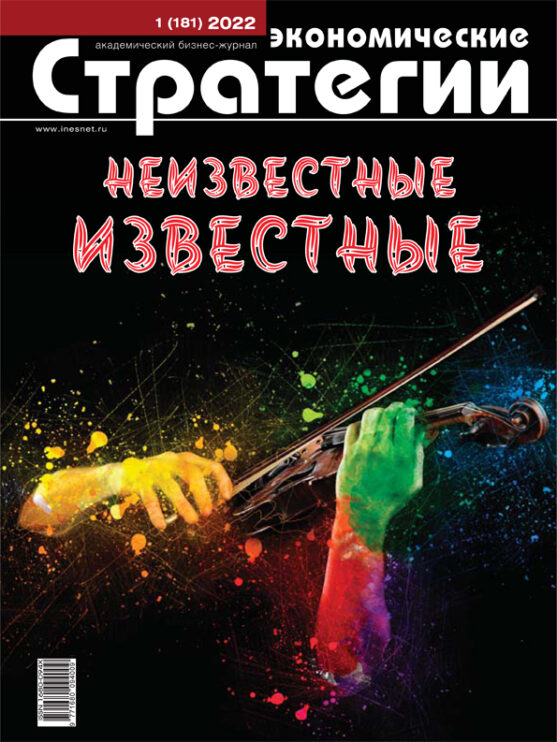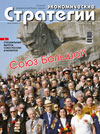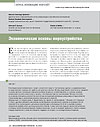Strategic Planning and Industrial Policy at the Current Stage of the Cyclic World Economic Development
DOI: https://doi.org/10.33917/es-1.181.2022.40-51
The article substantiates appropriateness of the network industrial policy to technological and socio-economic challenges of the modern era of the VI technological order (the second stage of the third technological megacycle). Given the fact that at the present stage technological and sectoral priorities of the national economic development can be formulated more clearly (compared to the previous stage of the technological megacycle), one of the key elements of industrial policy is strategic planning. It is concluded that in Russia since the 2000s there has been a process of establishing a national system of strategic planning, accelerated after the 2014 events. At the same time, its contradictory nature is shown, which determines the low effectiveness of the strategic documents implementation. This, in its turn, significantly reduces the probability that in the XXI century Russia would be able to become one of the world economic leaders.
Источники:
1. Tolkachev S.A., Teplyakov A.Yu. Kontseptsiya otraslevogo rasprostraneniya bazisnykh tekhnologii: novyi tekhnologicheskii megatsikl [The Concept of Sectoral Diffusion of Basic Technologies: New Technological Megacycle]. Ekonomist, 2020, no 1, pp. 25–35.
2. Tolkachev S.A., Teplyakov A.Yu. Tekhnologicheskii megatsikl i promyshlennaya politika [Technological Megacycle and Industrial Policy]. Ekonomist, 2021, no 1, pp. 43–54.
3. Glaz’ev S.Yu. Mirokhozyaistvennye uklady v global’nom ekonomicheskom razvitii [World Economic Orders in Global Economic Development]. Ekonomika i matematicheskie metody, 2016, no 2, pp. 3–29.
4. Aivazov A.E., Belikov V.A., Romanova A. Evolyutsiya mirovoi denezhno-valyutnoi sistemy v protsesse smeny mirokhozyaistvennykh ukladov [Evolution of the World Monetary System in the Process of Changing World Economic Orders]. Ekonomist, 2019, no 7, pp. 40–53.
5. Tolkachev S.A., Teplyakov A.Yu. Kontseptsiya tsiklicheskoi posledovatel’nosti rasprostraneniya bazisnykh tekhnologii v ekonomike i ontologicheskaya obuslovlennost’ teorii industrial’nogo obshchestva [The Concept of Cyclic Sequence of the Basic Technologies Diffusion in the Economy and Ontological Conditionality of the Industrial Society Theories]. Ekonomicheskoe vozrozhdenie Rossii, 2019, no 4, pp. 19–36.
6. Tolkachev S.A. Setevaya promyshlennaya politika v epokhu novoi industrial’noi revolyutsii [Network Industrial Policy in the Era of the New Industrial Revolution]. Zhurnal NEA, 2018, no 3, pp. 155–162.
7. Kontseptsiya sotsial’no-ekonomicheskogo razvitiya Rossii do 2020 goda [The Concept of Socio-economic Development of Russia until 2020]. Konsul’tantPlyus, available at: http://www.consultant.ru/document/cons_doc_LAW_82134/28c7f9e359e8af09d7244d8033c66928fa27e527/
8. Strategiya-2020, available at: http://2020strategy.ru/
9. Kontseptsiya razvitiya Rossii do 2020 goda okazalas’ nevypolnimoi. Pochemu razoshlis’ traektorii natsional’nykh tselei 2008 goda i fakticheskogo razvitiya strany [The Concept of Russia’s Development until 2020 Turned Out to be Unfeasible. Why Trajectories of the National Goals of 2008 and of Actual Development of the Country have Diverged]. RBK, 2019, November, 2, available at: https://www.rbc.ru/economics/02/11/2019/5db946fb9a794742bc0d5b68.





